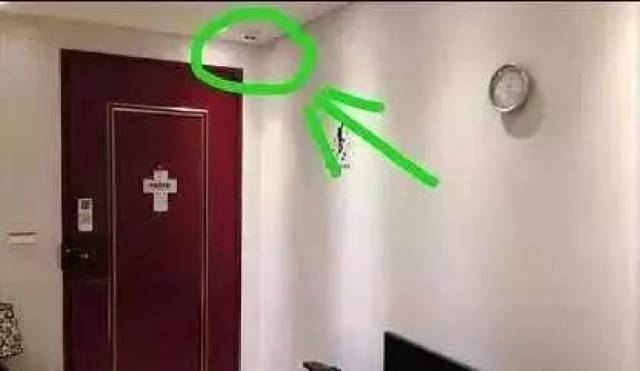
There are few places in the world that we consider truly our own. The bedroom is one of them. It is a sanctuary, a place of rest, of vulnerability, and of intimate connection. It’s where we shed the day’s stresses, our public persona, and our clothes, trusting in the simple, profound safety of four walls and a closed door.
So, the violation is almost unimaginable. Perhaps it was a glint of light from a smoke detector that didn’t look quite right. A tiny, perfectly drilled hole in the face of a digital clock. A USB charger plugged into the wall that you don’t remember buying. Your heart hammers, your blood runs cold, and with trembling hands, you confirm your worst fear: a hidden camera, silently transmitting the most private moments of your life to an unknown viewer.
In that moment, the world shrinks to a single, horrifying realization. Finding a hidden camera in the bedroom means your privacy has been obliterated.
This is not a simple breach, like a company losing your email data. This is a targeted, intimate, and profound violation. It is the psychological equivalent of a home invasion, but one that lingers, unseen, for days, weeks, or even months. The perpetrator hasn’t just stolen your image; they have stolen your sense of safety, your trust, and your right to be unobserved in your most unguarded moments.
The Motives: Who Would Do This and Why?
The “why” is as disturbing as the act itself, and understanding the motive is key to understanding the depth of the betrayal.
- The Partner: This is, tragically, the most common source of this kind of violation. A partner who plants a camera is not planning a romantic surprise; they are planning an act of control and possession. Their motives can range from pathological jealousy and a desire to monitor your every move, to the creation of material for blackmail to prevent you from leaving the relationship. In some cases, it may be for their own private gratification or to share with others online. This betrayal by someone who vowed intimacy is a uniquely devastating form of emotional abuse.
- The Stranger: This could be a landlord, a previous tenant, a handyman, or even a guest in your home. The motive here is often voyeurism—a deviant sexual gratification derived from watching unsuspecting people. The invasion is no less severe; in some ways, the anonymity and unknown intent can make the violation feel even more random and terrifying.
- The Commercial Exploiter: In a worst-case scenario, usually in vacation rentals like Airbnbs or hotels, the footage could be being captured for a darker purpose: to be sold on the internet on pornographic or voyeuristic websites. This turns your most private life into a commodity for profit.
The Aftermath: The Theft of More Than Just Privacy
The immediate physical danger may be low, but the psychological damage is deep and lasting. The initial shock gives way to a cascade of corrosive emotions:
- Violation: The feeling of being psychologically undressed, of having your body and intimate moments stolen without consent.
- Anger and Rage: A righteous fury at the person who committed this act and at the world for feeling suddenly unsafe.
- Hyper-vigilance: The inability to ever feel truly relaxed again in your own home. You may find yourself scanning every electrical outlet, every bookshelf, every air vent, forever waiting for the other shoe to drop. Your sanctuary has become a place of potential threat.
- Anxiety and Paranoia: A generalized fear that spreads beyond the bedroom. If you weren’t safe there, where are you safe? This can lead to social withdrawal and difficulty with future intimacy.
Your Action Plan: Reclaiming Your Power and Your Space
In the raw, disorienting moments after a discovery, it is crucial to have a clear plan. Your priority is to protect yourself and build a case.
- DO NOT TOUCH IT. As tempting as it is to rip it from the wall, do not disturb the camera. It is evidence. Your fingerprints are now on it, which is fine, but you don’t want to be accused of tampering.
- Do Not Confront Anyone Yet. If you suspect your partner, do not confront them alone. If you are in a rental, do not alert the owner or landlord yet, as they may be the perpetrator.
- Leave the Room and Call the Police Immediately. This is a crime. Call 911 or your local non-emergency number and state clearly: “I have found a hidden camera in my bedroom. I am a victim of a crime.” The police are trained for this. They will come, collect the evidence, and begin an investigation.
- Document Everything. Before the police arrive, if you can do so safely without touching the device, take pictures and video of the camera in situ (in place). Use your own phone to document its location, what it’s pointed at, and how it’s disguised.
- Seek Support. You have experienced a trauma. Call a trusted friend or family member to be with you. Consider calling a crisis hotline, such as the National Domestic Violence Hotline (1-800-799-7233) if the perpetrator is your partner, as they are experienced in this form of abuse. A therapist can be invaluable in processing the complex emotions that follow.
Finding a hidden camera is not an invasion of privacy; it is the total annihilation of it. It is a deliberate act that shatters the fundamental trust we place in our partners and our homes. But in the midst of that violation, remember this: you are the victim of a crime, and you have rights. By taking swift, deliberate action—involving the law, securing evidence, and seeking emotional support—you begin the difficult but essential process of reclaiming not just your privacy, but your power, your safety, and your right to a sanctuary of your own.